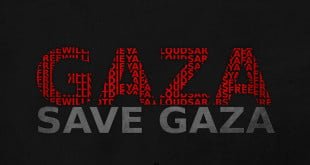Jack Shenker, the Guardian’s reporter in Cairo, was beaten and arrested alongside protesters in the capital last night. He made this remarkable recording while locked in the back of a security forces truck next to dozens of protesters.
Jack Shenker Cairo
guardian.co.uk, Wednesday 26 January 2011 14.23 GMT
At one o’clock in the morning, after a day covering the protests across the Egyptian capital, I found myself in Abdel Munim Riyad square, a downtown traffic junction close to Tahrir, Cairo’s central plaza, which had been occupied by demonstrators for several hours. Egyptian security forces had just launched an attack on Tahrir and thousands of people were now pouring in my direction, teargas heavy in the air. A few hundred rallied in front of me on Al Galaa Street; spying an empty police truck in the road, several people began to smash it up, eventually tipping it over and setting it on fire.
In the distance, riot police could be seen advancing from Tahrir. I called the news desk to report that violence was spreading; while I was on the phone the police began to charge, sending me and several hundred protesters running. A short distance away I stopped, believing it safe; a number of ordinarily dressed young men were running in my direction and I assumed them to be protesters also fleeing the police charge behind them. Yet as two of them reached me I was punched by both simultaneously and thrown to the ground, before being hauled back up by the scruff of the neck and dragged towards the police lines.
The men were burly and wore leather jackets – up close I could see they were amin dowla, plain-clothes officers from Egypt’s notorious state security service. All attempts I made to tell them in Arabic and English that I was an international journalist were met with more punches and slaps; around me I could make out other isolated protesters also being hauled along, receiving the same treatment.
We were being dragged towards a security building on the edge of the square, two streets away from my apartment, and as I approached the doorway of the building other security officers took flying kicks and punches at me. I spotted a high-ranking uniformed officer and shouted at him that I was a British journalist. He responded by walking over and punching me twice, saying in Arabic, “Fuck you and fuck Britain”.
Other protesters and I were thrown through the doorway, where we had to run a gauntlet of officers beating us with sticks. Inside we were pushed against the wall; our mobiles and wallets were removed. Officers walked up and down ordering us to face the wall and not look back, as more and more protesters were brought in behind us. Anyone who turned round was instantly hit. After approximately an hour we were dragged out again one by one.
Outside we were loaded on to one of the green central security trucks that had been ubiquitous throughout the streets that day. The steps up to the vehicle were short and narrow, and the doorway into the pitch-black holding area inside the truck barely wide enough to fit a single person – my head was smashed against the metal door frame by a policeman as I entered. Inside, dozens of protesters were already packed in and crouched in the darkness – the trucks have barely any windows, just a handful of thick metal grates through which it is impossible to see anything. There were 44 of us inside the tiny space.
With barely room to move, the temperature rose quickly and several people fainted. Many of the protesters were nursing severe wounds, visible by occasional flashes of streetlight that came through the grates.
I realised I still had my dictaphone and started making recordings, describing what was happening and interviewing those around me. The truck drove east at top speed, towards the outskirts of the city – whenever it slowed or veered round a corner we were all sent flying. One protester, a diabetic, had slipped into a coma and was clearly in a grave medical condition; despite banging the side of the truck and shouting through the grates, we couldn’t get the drivers to stop.
We eventually pulled up outside a government security headquarters on the desert fringes of the city. After a long delay a policeman unlocked the door to try to extract a specific prisoner called “Nour” – a young activist who is the son of Ayman Nour, a prominent dissident. As one we charged at the doorway, sending him flying and spilling out on the street. The unconscious protester was carried out and cars flagged down to take him to hospital. The rest of us had to find a way of making our own way back to city.
For more information visit: http://www.guardian.co.uk/world/2011/jan/26/egypt-protests
 Jamiatul Ulama KZN Council of Muslim Theologians
Jamiatul Ulama KZN Council of Muslim Theologians



